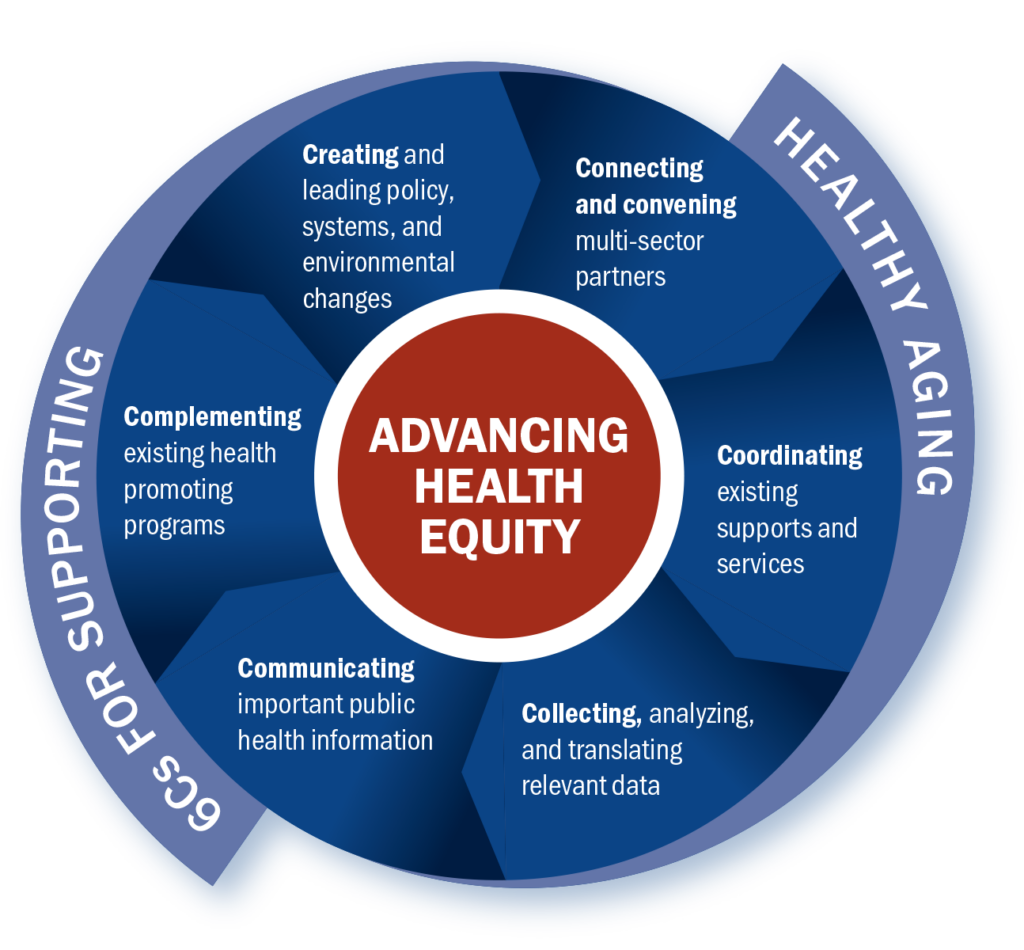About
Every day, 10,000 Americans turn 65. The public health sector’s focus on prevention has had a profound impact on longevity in the U.S., and yet, historically and pre-pandemic, public health has not embraced efforts to improve the health and well-being of older adults. As the demographics of our population continue to shift, public health should elevate healthy aging as a core public health function, with a foundational focus on equity.
6Cs Framework: To facilitate this transformation, Trust for America’s Health (TFAH), in partnership with The John A. Hartford Foundation, developed the Framework for Creating Age-Friendly Public Health Systems (AFPHS). This Framework is based on 6Cs that outline six areas of age-friendly public health activities:

Our Network: TFAH has worked with state and local health departments across the country to elevate healthy aging as a core public health function, including Florida Michigan, Mississippi, New York, and Washington. TFAH is also working with other public health organizations include 10 Public Health Institutes.
Recognizing Engagement: To further incentivize the adoption of healthy aging as a core public health function, TFAH developed an AFPHS Recognition Program that honors engagement in healthy aging at the individual and departmental levels, as well as other public health organizations.